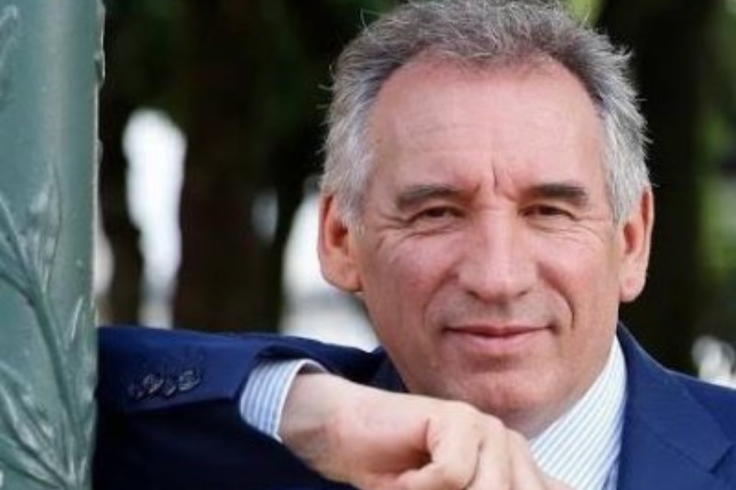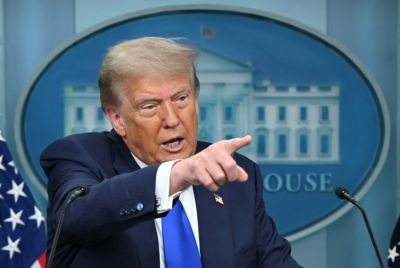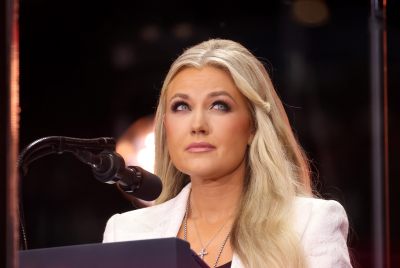French Government Collapses: What Happens Next — and Who Will Be the Next PM?
This marks the second government collapse in nine months, rooted in the hung parliament from Macron's 30 June and 7 July 2024 snap elections

France's political crisis deepened on 8 September 2025, as Prime Minister François Bayrou's government collapsed in a crushing confidence vote defeat, exposing President Emmanuel Macron's fragile leadership amid a spiralling debt crisis and parliamentary deadlock.
Bayrou, Macron's fourth premier since 2022, staked his tenure on austerity measures to curb France's ballooning public debt, but lawmakers from the far-left and far-right united to oust him, leaving the eurozone's second-largest economy in turmoil.
With no stable majority in the National Assembly since the 2024 snap elections, Macron must now scramble for a fifth prime minister, as investors fret over fiscal paralysis that threatens France's EU standing and global influence.
Bayrou's Ousting Exposes Deepening French Political Crisis in 2025
François Bayrou's centrist government unravelled on 8 September 2025, when the National Assembly rejected his confidence motion by 364 votes to 194, forcing his resignation the following day. Appointed in December 2024 after Michel Barnier's brief tenure ended in a similar no-confidence vote, Bayrou aimed to stabilise France's finances amid a public debt of £2,182 billion ($3,346 billion), 114% of GDP, by early 2025.
His 2026 budget proposed £28.7 billion ($44 billion) in cuts, including welfare freezes and scrapping two public holidays, but opposition decried it as unfair austerity hitting the most vulnerable.
This marks the second government collapse in nine months, rooted in the hung parliament from Macron's 30 June and 7 July 2024 snap elections. The left-wing New Popular Front secured 193 seats, centrists 166, and far-right National Rally 138.
Bayrou warned lawmakers: 'You have the power to bring down the government, but you do not have the power to erase reality,' highlighting the 'unbearable' debt equivalent to £43,385.50 ($58,825.51) per citizen. Assembly President Yaël Braun-Pivet confirmed the defeat, leaving Bayrou as caretaker amid planned 'Bloquons Tout' protests on 10 September 2025.
Macron Faces Limited Options to Resolve Parliamentary Deadlock
President Macron's office stated on 9 September 2025 that he would accept Bayrou's resignation and appoint a successor 'in a matter of days', rejecting calls for his own resignation despite opposition pressure. With his term ending in 2027, Macron retains control over foreign policy and defence but grapples with a fragmented Assembly lacking a majority bloc.
Far-right leader Marine Le Pen hailed the vote as 'the end of the agony of a phantom government' and demanded snap elections. Parliamentary dissolution is viable after July 2025, but Macron resists, fearing it would bolster extremes. Recent Elabe polls show National Rally leading, with Macron's bloc third. Bond yields have surpassed Spain's and Greece's, signalling investor alarm over the 5.4% GDP deficit projection for 2025 and potential 2026 budget delays.
A post on X from @SkyNews on 8 September captured the fallout: '"We are giving Macron two choices. Either he can be impeached or he can resign" says French National Assembly Deputy Mathilde Panot.'
'We are giving Macron two choices. Either he can be impeached or he can resign' says French National Assembly Deputy Mathilde Panot.
— Sky News (@SkyNews) September 8, 2025
She is speaking in Paris after the French Prime Minister Francois Bayrou lost the confidence vote.https://t.co/TC2ROCL7wW
📺 Sky 501 pic.twitter.com/Q59I8fm1eM
Potential Candidates Emerge for Next Prime Minister Role
Macron's search for a fifth premier focuses on figures who might bridge divides without facing immediate ousting. Sébastien Lecornu, the 39-year-old defence minister and Renaissance loyalist, leads as a youthful centrist option for stability.
Justice Minister Gérald Darmanin, a conservative with a firm law-and-order stance, and Interior Minister Bruno Retailleau of Les Républicains are right-leaning contenders, though their pro-business views could alienate the left.
Potential leftward pivots include Socialist leader Olivier Faure, with 66 deputies, or ex-premier Bernard Cazeneuve for compromise appeal, as suggested by Greens' Marine Tondelier. Labour Minister Catherine Vautrin offers another conservative path.
Economic and Social Fallout Looms from Government Instability
Bayrou's ousting risks stalling France's 2025 recovery, with unions eyeing strikes on 18 September against austerity cuts, echoing the Yellow Vests movement. Public trust in Macron has sunk to 15%, according to the latest Verian-Le Figaro polls, amid Ukraine and Middle East conflicts weakening EU clout. Without bipartisan pacts, France faces the prospect of a prolonged deadlock until the 2027 elections, eroding investor confidence and stalling growth.
© Copyright IBTimes 2025. All rights reserved.





















